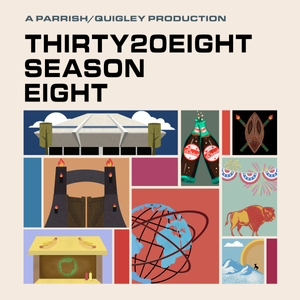
She Said, She Said
07/02/20 • 41 min
2 Listeners
In 1969, radical feminists known as the Redstockings gathered in a church in Greenwich Village, and spoke about their experiences with abortion. They called this ‘consciousness-raising’ or ‘speaking bitterness,’ and it changed the history of women’s rights, all the way down to the 1977 National Women’s Convention and, really, down to the present day. The idea of ‘speaking bitterness’ came from a Maoist practice, and is a foundation to both the #MeToo movement and the conservative Victim’s Rights movement. But at what cost?
Learn more about your ad-choices at https://www.iheartpodcastnetwork.comSee omnystudio.com/listener for privacy information.
In 1969, radical feminists known as the Redstockings gathered in a church in Greenwich Village, and spoke about their experiences with abortion. They called this ‘consciousness-raising’ or ‘speaking bitterness,’ and it changed the history of women’s rights, all the way down to the 1977 National Women’s Convention and, really, down to the present day. The idea of ‘speaking bitterness’ came from a Maoist practice, and is a foundation to both the #MeToo movement and the conservative Victim’s Rights movement. But at what cost?
Learn more about your ad-choices at https://www.iheartpodcastnetwork.comSee omnystudio.com/listener for privacy information.
Previous Episode

The Computermen
In 1966, just as the foundations of the Internet were being imagined, the federal government considered building a National Data Center. It would be a centralized federal facility to hold computer records from each federal agency, in the same way that the Library of Congress holds books and the National Archives holds manuscripts. Proponents argued that it would help regulate and compile the vast quantities of data the government was collecting. Quickly, though, fears about privacy, government conspiracies, and government ineptitude buried the idea. But now, that National Data Center looks like a missed opportunity to create rules about data and privacy before the Internet took off. And in the absence of government action, corporations have made those rules themselves.
Learn more about your ad-choices at https://www.iheartpodcastnetwork.comSee omnystudio.com/listener for privacy information.
Next Episode

For the Birds
In the spring of 1958, when the winter snow melted and the warm sun returned, the birds did not. Birdwatchers, ordinary people, everyone wondered where the birds had gone. Rachel Carson, a journalist and early environmentalist, figured it out — they’d been poisoned by DDT, a pesticide that towns all over the country had been spraying. Carson wrote a book about it, Silent Spring. It succeeded in stopping DDT, and it launched the modern environmental movement. But now, more than 60 years later, birds are dying off en masse again. Our question is simple: What are the birds trying to tell us this time, and why can’t we hear their message any more?
Learn more about your ad-choices at https://www.iheartpodcastnetwork.comSee omnystudio.com/listener for privacy information.
The Last Archive - She Said, She Said
Transcript
Pushkin. Imagine there's a place in our world where the known things go. A quarter of the mind, lined with shelves, cluttered with proof, A purple cowboy hat. Oh, someone's put up here on the wall poster, it says, the personal is political. I love those day glow flowers. This place, this warehouse, stores the facts that matter, and matters of fact, the evidence of the past. It's all that stands between a reasonable doubt and the chaos of uncertai
If you like this episode you’ll love
Episode Comments
Featured in these lists
Generate a badge
Get a badge for your website that links back to this episode
<a href="https://goodpods.com/podcasts/the-last-archive-37619/she-said-she-said-2360106"> <img src="https://storage.googleapis.com/goodpods-images-bucket/badges/generic-badge-1.svg" alt="listen to she said, she said on goodpods" style="width: 225px" /> </a>
Copy




